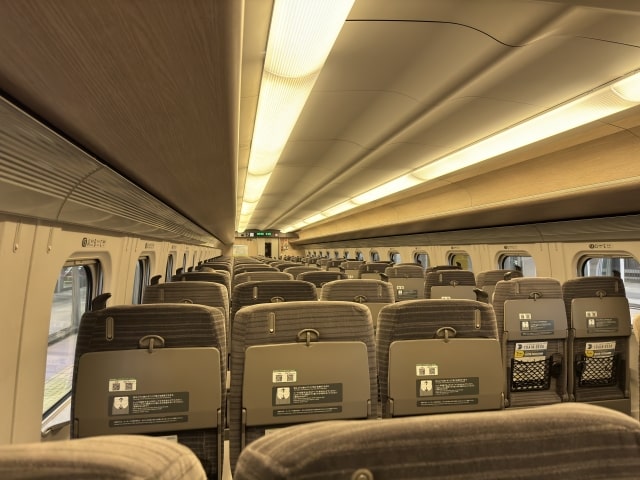Recently, incidents of foreign tourists occupying reserved seats without proper tickets on Japan’s Shinkansen have drawn public attention. Such actions not only disrupt the experience for rightful passengers but also undermine the orderly system of public transportation in Japan. With the growing number of tourists visiting the country, finding solutions to prevent these issues is becoming increasingly important.
Specific Case on the Shinkansen
This issue frequently arises during peak travel seasons when tourists unknowingly or intentionally take reserved seats without making a booking. Regular passengers have reported being left standing or engaging in disputes with tourists over seat occupancy. The Shinkansen, renowned for its speed and convenience, attracts both domestic and international travelers, making such incidents more frequent with increasing tourism.
Similar Incidents Abroad
Unauthorized use of reserved seats is not unique to Japan. For example, on India’s Bhuj-Shalimar Express, unauthorized passengers occupied reserved seats, leaving a family without their rightful places. These incidents reflect a common global issue faced by public transportation systems, where travelers—whether locals or tourists—fail to adhere to rules.
European railways also report similar problems. Many trains offer a mix of reserved and non-reserved seating, leading to confusion, especially during tourist seasons. Travelers unfamiliar with the reservation system often sit in reserved seats, resulting in disputes with locals and disruptions for transport operators.
Causes: Cultural and Behavioral Differences
One key reason behind such incidents is the difference in cultural norms and transportation practices. In Japan, reserved seating requires advance booking, and passengers generally respect these rules. However, in many other countries, all seats may be treated as non-reserved or available on a first-come, first-served basis, causing confusion for foreign visitors.
Another contributing factor is inadequate multilingual information. In some cases, tourists do not understand the distinction between reserved and non-reserved seats due to language barriers. Additionally, as free seats fill up during busy periods, some travelers opt to sit in reserved seats, further exacerbating the problem.
Solutions: Preventive Measures to Avoid Future Issues
1. Enhanced Multilingual Guidance
Providing clear, multilingual instructions in stations and onboard trains can help tourists distinguish between reserved and non-reserved seats, reducing misunderstandings.
2. Introduction of Penalties for Unauthorized Use
Implementing fines for unauthorized seat usage can encourage compliance and maintain order. Public awareness campaigns about such penalties may also deter rule violations.
3. Promotion of Advance Reservations
Tour agencies and online travel platforms can play a role in encouraging tourists to book seats in advance. Including reservation instructions during travel planning will help mitigate issues.
4. Training for Railway Staff
Equipping train staff with the skills to handle disputes and language barriers will ensure smoother interactions with foreign tourists.
Conclusion: The Importance of Respectful Travel
Adhering to local rules is essential not only for smooth travel but also for fostering positive international relations. Visitors to Japan can enhance their travel experience by respecting the rules of public transport. Likewise, Japan must continue to improve guidance and preventive measures to ensure a comfortable environment for both tourists and locals.









Comments